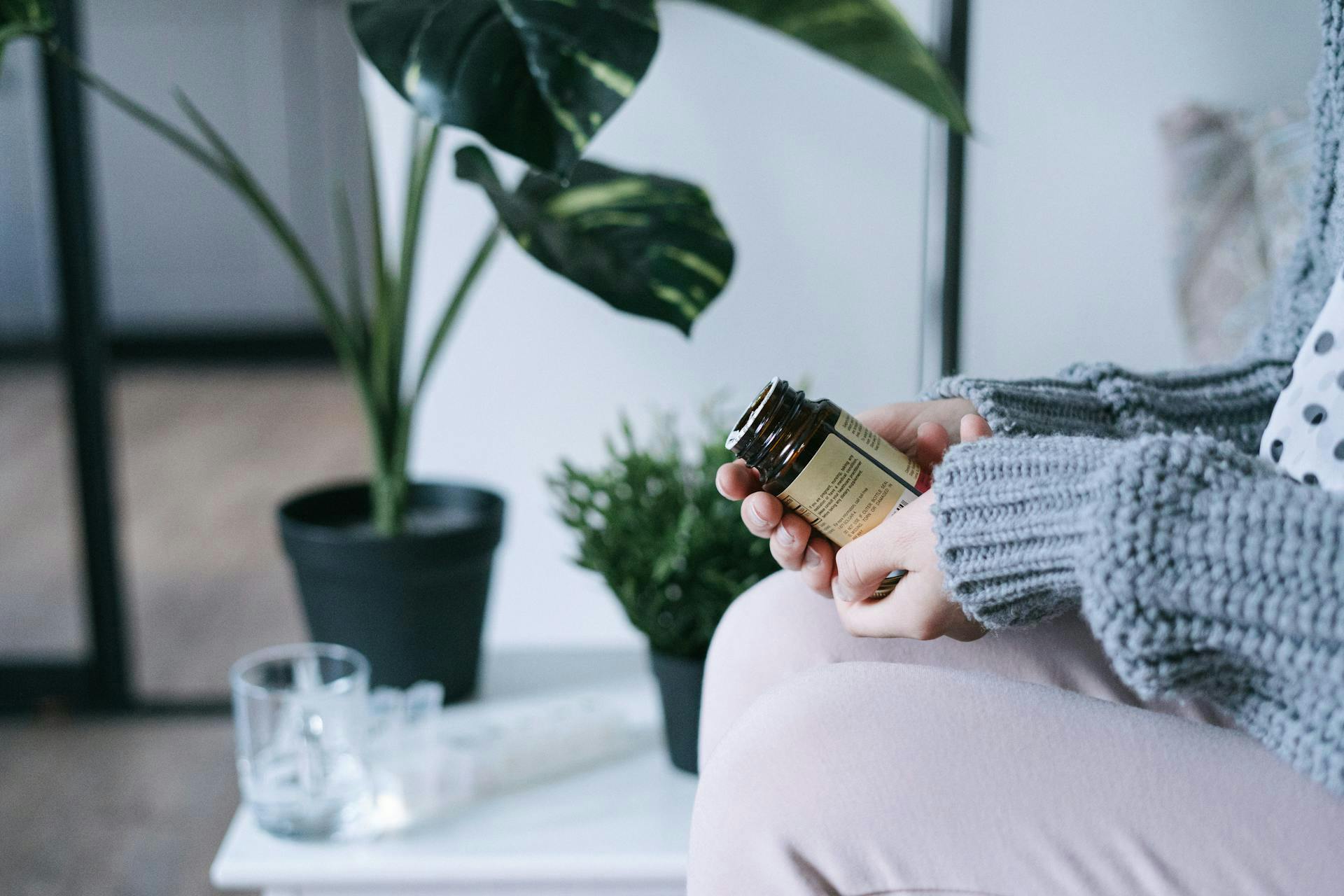LDN & Better Sleep: How Low-Dose Naltrexone Can Help You Sleep Better Naturally
By Dr. Jossy Onwude, MD
Reviewed by Dr. Daniel Uba, MD
Published Apr 18, 2025
9 min read

Struggling to get a good night’s sleep? You’re not alone. Millions of people toss and turn each night, desperate for restful sleep. And while sleep support supplements like melatonin or magnesium work for some, others are turning to something a bit unexpected: Low Dose Naltrexone (LDN).
LDN has been gaining attention for its surprising effect on sleep, especially in people with chronic pain, autoimmune issues, or inflammation. But how exactly does it work? And can it help you sleep better?
In this article, we’ll break everything down in a simple and easy-to-follow way. Whether you’re a curious teen, a tired parent, or someone just fed up with restless nights, this guide will help you understand how LDN might be the sleep solution you’ve been searching for.
What Is Low Dose Naltrexone (LDN)?
Let’s start with the basics.
Naltrexone is a medication originally approved by the FDA in the 1980s to treat opioid and alcohol dependence. At high doses (like 50 mg), it blocks opioid receptors in the brain and helps people recover from addiction.
But scientists later discovered something fascinating: when taken at a much lower dose—usually between 0.5 to 4.5 mg—naltrexone can help reduce inflammation, balance the immune system, and even improve mood and sleep.
This small dose is called Low Dose Naltrexone (LDN).
Unlike regular naltrexone, LDN doesn’t block all opioid effects. Instead, it creates a short-term block that tricks your body into producing more endorphins—your body’s natural “feel good” chemicals. These endorphins are deeply connected to how relaxed, happy, and pain-free you feel, which is where sleep comes in.
Since then, Low Dose Naltrexone has been explored as a treatment for conditions like fibromyalgia, chronic fatigue syndrome, multiple sclerosis, and Crohn’s disease. These are all conditions where inflammation and the immune system seem to play a role, and where sleep problems are also super common.
So, what’s the connection between LDN and sleep?
How LDN May Improve Sleep Quality
So, how does LDN actually help you sleep better? There are several reasons:
1. Boosts Endorphins and Promotes Relaxation
When you take LDN, your body responds by increasing endorphin production. Endorphins are chemicals that reduce pain and promote well-being. They also help regulate your sleep-wake cycle and emotional state.
More endorphins = better mood + less pain = better sleep.
This connection between endorphins and sleep quality is one of the main reasons people using LDN often report deeper, more restful nights.
2. Reduces Inflammation That Can Disrupt Sleep
There’s a strong link between inflammation and sleep. Conditions like fibromyalgia, arthritis, and autoimmune diseases can cause inflammation that keeps your body in a state of stress, even while you’re trying to sleep.
LDN works by calming this inflammation, giving your body a better chance to rest and recover at night.
In fact, many people with chronic inflammation who start taking LDN report dramatic improvements in sleep within just a few weeks.
3. Regulates the Immune System
Your immune system and sleep are closely connected. When you’re sick or inflamed, your immune system releases chemicals that can interrupt normal sleep patterns.
LDN gently balances the immune system, especially in people with autoimmune disorders, leading to fewer flare-ups and less nighttime discomfort.
This makes LDN especially helpful for people dealing with immune system and insomnia issues.
4. May Support the Circadian Rhythm
Your body has a natural sleep-wake cycle called the circadian rhythm. Disruptions to this cycle, like from stress, poor diet, or inflammation, can cause insomnia or poor sleep quality.
By supporting endorphin production and reducing internal stress, LDN can help bring your circadian rhythm back into balance. This is known as circadian rhythm support, and it’s essential for getting deep, uninterrupted sleep.
What the Science Says: LDN and Sleep

So, is there any research to back this up?
While LDN is still considered an “off-label” treatment for sleep, a growing number of studies and case reports are pointing to its benefits, especially for people with underlying health issues.
Fibromyalgia and Chronic Pain
A small study from Stanford University found that people with fibromyalgia who took LDN reported reduced pain and improved sleep. Many participants described better sleep patterns within just a few weeks.
Multiple Sclerosis (MS)
A 2018 study published in PubMed Central reported that MS patients taking LDN experienced less fatigue, improved mood, and better sleep quality compared to those not using it.
Autoimmune Disorders
People with conditions like Crohn’s disease, lupus, and rheumatoid arthritis often report improved sleep and less nighttime discomfort while taking LDN.
Anecdotal Reports
While more large-scale studies are still needed, thousands of people have shared personal stories online about how LDN helped them finally get a good night’s sleep, often after trying everything else without success.
A lot of the data comes from small studies, surveys, and personal experiences, but the trend is there: people with chronic inflammation who take LDN often sleep better.
Who Might Benefit Most from LDN for Sleep?
LDN isn’t a typical sleep aid. It’s not like taking magnesium, melatonin, or a sleeping pill. Instead, it works behind the scenes by addressing root causes of poor sleep, like inflammation, pain, and immune dysfunction.
You might benefit from LDN if you:
- Have chronic pain or inflammation
- Struggle with autoimmune diseases
- Experience sleep disturbances from anxiety or depression
- Have tried other sleep support supplements without lasting results
- Want a natural way to sleep better without relying on sedatives
Common Conditions Linked to Sleep Problems (That LDN Can Help)
1. Fibromyalgia
This condition causes widespread pain and poor sleep. LDN has been shown to improve both.
2. Chronic Fatigue Syndrome (CFS)
People with CFS often struggle with unrefreshing sleep and exhaustion. LDN may help by improving energy and sleep quality.
3. Multiple Sclerosis
MS often affects sleep due to muscle spasms and pain. LDN can reduce symptoms and improve sleep.
4. Lupus and Rheumatoid Arthritis
These autoimmune conditions often cause joint pain and inflammation, which can interfere with sleep. LDN helps calm the immune response.
5. Anxiety and Depression
LDN boosts endorphins, which can lift mood and promote better sleep in people with mild to moderate mental health challenges.
LDN Dosage for Sleep Support: What to Know

One of the most important things to understand about LDN is that the dose is much smaller than standard naltrexone.
Typical Dosing Range:
- Most people start at 0.5 mg to 1.5 mg per day.
- The dose can be slowly increased up to 4.5 mg, depending on individual needs.
When to Take It:
- Some people take LDN in the morning to avoid vivid dreams or restlessness at night.
- Others take it at night, especially if they find it helps them wind down.
- Everyone is different—timing may require some trial and error.
Work With Your Doctor:
Always work with a healthcare provider who understands how to prescribe and monitor LDN therapy.
Side Effects of LDN (Especially Related to Sleep)
Like all medications, LDN can cause side effects, but they’re usually mild and temporary.
Here are the most common ones:
- Vivid dreams or nightmares
- Difficulty falling asleep during the first week
- Mild headaches or upset stomach
Most people find that these symptoms go away within a few days. If sleep disturbances continue, adjusting the time of day you take LDN often solves the problem.
Real-Life Experiences: What People Say About LDN and Sleep
While scientific studies are still catching up, personal stories tell us a lot about how LDN works in the real world.
Some people with fibromyalgia say they finally started sleeping through the night for the first time in years after starting LDN. Others with autoimmune diseases like lupus or Hashimoto’s report less nighttime pain and deeper sleep. Even some individuals without chronic illness say they feel “more refreshed” and “less anxious” in the mornings.
Of course, it doesn’t work for everyone, and some people give up too soon if they have trouble in the first few days. But for those who stick with it, the payoff can be huge.
Tips to Maximize Sleep Benefits While Using LDN
While LDN can be incredibly helpful, it works even better when combined with good sleep habits.
Here’s how to boost your sleep naturally while using LDN:
Practice Good Sleep Hygiene
- Stick to a consistent bedtime and wake time.
- Avoid screens 1–2 hours before bed.
- Keep your bedroom cool, quiet, and dark.
Try Natural Sleep Support Supplements
Some people combine LDN with other gentle sleep aids like:
- Magnesium glycinate
- Melatonin (low dose)
- Ashwagandha or L-theanine
Eat Anti-Inflammatory Foods
A healthy diet reduces inflammation and helps sleep. Try:
- Leafy greens, berries, omega-3 rich foods like salmon
- Avoid sugar, fried foods, and processed snacks
Exercise During the Day
Light movement (like walking or stretching) supports your circadian rhythm and helps you fall asleep more easily.
Who Should (and Shouldn’t) Consider LDN?

LDN is generally safe when prescribed by a knowledgeable doctor. It’s commonly used off-label for people with:
- Autoimmune diseases (like MS, Hashimoto’s, or Crohn’s)
- Chronic pain or fibromyalgia
- Long COVID
- Chronic Fatigue Syndrome
- Mood disorders
- Sleep disturbances linked to inflammation or immune issues
However, LDN is not for everyone. People who are currently taking opioid medications (like codeine, tramadol, or morphine) should not take LDN, because it blocks those drugs and could cause withdrawal or reduce their effectiveness.
As always, talk to a healthcare provider who understands LDN before trying it, and don’t rely on internet advice alone.
How to Get LDN and What to Ask Your Doctor
LDN is not available over the counter. You’ll need a prescription from a licensed provider, and it must be filled at a compounding pharmacy—a special pharmacy that makes medications in custom doses.
Questions to Ask Your Doctor:
- Could LDN help with my sleep and inflammation?
- What dosage should I start with?
- Should I take it in the morning or at night?
- How long should I try it before expecting results?
Final Thoughts: Is LDN the Sleep Solution You’ve Been Looking For?
If you’ve been battling poor sleep, and nothing seems to help, LDN might be worth exploring. While it’s not a magic pill, it works at the root level, calming inflammation, balancing your immune system, and helping your brain produce more endorphins.
Whether you’re dealing with an autoimmune condition, chronic pain, or simply looking for natural ways to sleep better, LDN may offer the relief you need—safely and gently.
As always, talk to a trusted healthcare provider before starting any new medication. But for many people, LDN has become a game-changer for better sleep.
Share this article

What Is REM Sleep? Benefits, Brain Effects, and Health Impact
Karyn O.
Feb 6, 20265 min read

Hidden Sugars: The Different Names for Sugar — and What They Mean for Your Health
Dr. Jossy Onwude, MD
Feb 6, 20265 min read

Digestive Enzymes for Bloating: Do They Really Work?
Lilian E.
Feb 5, 20265 min read

Best-in-class care is a click away
Find everything and everyone you need to reach your metabolic health goals, in one place. It all makes sense with Meto.
Join Meto